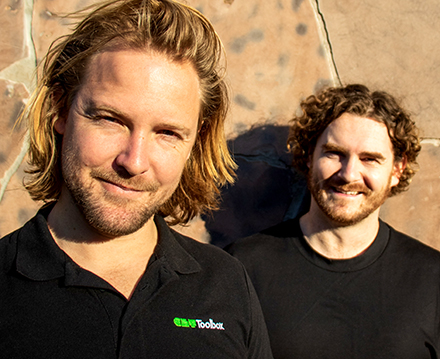CLT Toolbox, a design software platform that aims to remove the hurdles for structural engineers to become timber specialists and accelerate the transition to more sustainable building materials to decarbonise the construction industry, has secured its first $1.5M in seed funding. Source: Timberbiz
The funding has been led by leading investors including Archangel Ventures, BlueScope Steel’s venture capital arm, BluescopeX and Rob Phillpot through Gravel Road, the Co-Founder of Aconex, an Australian Construction Tech company that sold legendarily in 2018 for $1.6B.
The round also includes Aussie VC’s Flying Fox Ventures, ClimateTech focused Ecotone Ventures and Angel Investors Jodie Imam, Adrian Hondros and Peter Lam.
CEO Adam Jones, who was recently announced as the Engineers Australia Emerging Leader of Victoria, saw education and resourcing as a major bottleneck supporting the shift to lower embodied carbon materials, identifying that software can help accelerate the adoption of Mass Timber into the supply chain as a mainstream material choice.
“Without experience, resources, and education – new timber solutions are less likely to be proposed. This software can help us rapidly reduce the time it takes to adopt reduced carbon solutions and accelerate the industry’s decarbonisation movement,” Mr Jones said.
Hybrid mid-rise or high-rise buildings that combine traditional materials and “mass timber” benefits include the reduction of biogenic embodied carbon and potentially accelerated build times. Australia is becoming a leading country in this space with the world’s two largest timber towers, Atlassian Tower in Sydney and C6 in Perth.
The announcement comes at a time when the NSW Government is projected to follow California’s lead and implement the State Environment Planning Policy on 1 October, which would require the measurement and reporting of the embodied emissions of construction materials and encourage the design and delivery of sustainable buildings. Construction is estimated to be worth 18.1% of Australia’s carbon footprint.
According to the Clean Energy Finance Corporation (CEFC), by including Mass Timber as a contributing core material, some hybrid buildings have proven to have reduced their embodied carbon (including biogenic carbon) by up to by up to 75%.
“The inclusion of mass timber can help us achieve the goals being set by the wider industry to reduce the impact of construction on climate change. We need more expertise and market understanding than what is currently available,” co-founder of CLT Toolbox Ringo Thomas said.
Timber education is seen as the biggest bottleneck due to associated costs, long learning lead times and low numbers of expert engineers. It is estimated that the learning transition cost alone reaches up to $100,000 per engineer.
The CLT Toolbox software platform will simplify the learning curve for structural engineers to confidently design with mass timber and material guidelines by providing end-to-end education, specifications, resources, computations and design infrastructure, all of which the industry is urgently asking for.
CLT Toolbox aims to tackle this problem on a global scale, recently expanding to new offices in Ethiopia and Indonesia and has gained attention from timber engineering specialist firms across Europe, the UK & North America.
Users have already been acquired from both local and international tier one engineering firms who collectively employee hundreds of thousands of engineers worldwide seeking an application to address the demand for green building solutions.
“Adam and Ringo are exactly the founders you want to work with: mission driven with a natural default to action,” Quentin Wallace, Co-Founder of Archangel Ventures said.
“We were instantly drawn to supporting them and their goal to make mass timber mainstream and help reduce global carbon emissions.”
CLT Toolbox has also seen support through partnerships with leading academic bodies and the broader timber supply chain.








